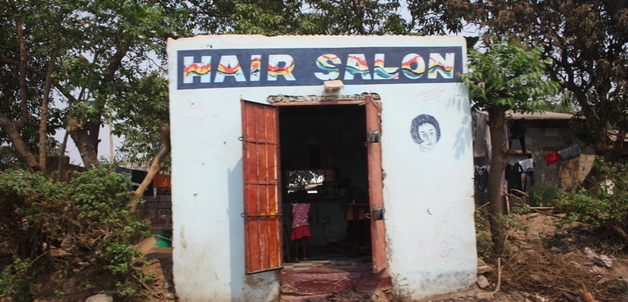 Africa is the world's youngest continent, with two-thirds of its labour force working on farms and at least another 15% in small rural enterprises.Can Africa’s rural economy create enough jobs for predominantly young job-seekers? SMEs could be an entryway to engage Africa's youth as entrepreneurs in the labour market. But farming might not be their best option.
Africa is the world's youngest continent, with two-thirds of its labour force working on farms and at least another 15% in small rural enterprises.Can Africa’s rural economy create enough jobs for predominantly young job-seekers? SMEs could be an entryway to engage Africa's youth as entrepreneurs in the labour market. But farming might not be their best option.
Africa is a young, rural continent. Two-thirds of its labour force work on farms and at least another 15% in small rural enterprises. Urbanization is slowing down. Potts (2012) points out that the rate at which African countries are urbanizing has decreased or is even stagnating. Africa’s rural population is expected to continue growing until 2050 and, with the median age of its population amounting to only 18 years old, Africa is also the world’s “youngest” continent.
 Africa is the world's youngest continent, with two-thirds of its labour force working on farms and at least another 15% in small rural enterprises.Can Africa’s rural economy create enough jobs for predominantly young job-seekers? SMEs could be an entryway to engage Africa's youth as entrepreneurs in the labour market. But farming might not be their best option.
Africa is the world's youngest continent, with two-thirds of its labour force working on farms and at least another 15% in small rural enterprises.Can Africa’s rural economy create enough jobs for predominantly young job-seekers? SMEs could be an entryway to engage Africa's youth as entrepreneurs in the labour market. But farming might not be their best option.
Africa is a young, rural continent. Two-thirds of its labour force work on farms and at least another 15% in small rural enterprises. Urbanization is slowing down. Potts (2012) points out that the rate at which African countries are urbanizing has decreased or is even stagnating. Africa’s rural population is expected to continue growing until 2050 and, with the median age of its population amounting to only 18 years old, Africa is also the world’s “youngest” continent.
These facts pose a challenge. How can Africa’s rural economy create enough jobs for predominantly young job-seekers entering the labour market? Due to its youthful demographics, the continent’s labour supply is growing by an estimated 3% per year. Fox et al (2013) calculate that 170 million new job-seekers will need to find employment by 2020. The majority are young people living in rural areas. If sufficient jobs cannot be created for them, the consequences may include political instability, social unrest, crime and conflict.
It is unlikely that farming has the potential to absorb all or even most of these young job-seekers. Apart from the rising pressure for higher productivity in agriculture, for example through better mechanization and new technologies, farming is also becoming less popular as an occupation among young people.
Will young people find adequate livelihoods outside agriculture, for example through self-employment? Entrepreneurship is considered to have a high potential to accommodate young job-seekers, and Fox et al (2013) estimate that at least 65 million need to be absorbed by rural enterprises.
Whether this is a realistic expectation and whether Africa’s young population will find entrepreneurship worthwhile pursuing remains to be seen. Currently only a small number of young adults choose entrepreneurship as an occupation, despite many government and donor-funded support programs.
Click here to read the full article, written by Paula Nagier and Wim Naudé, on The Broker.

